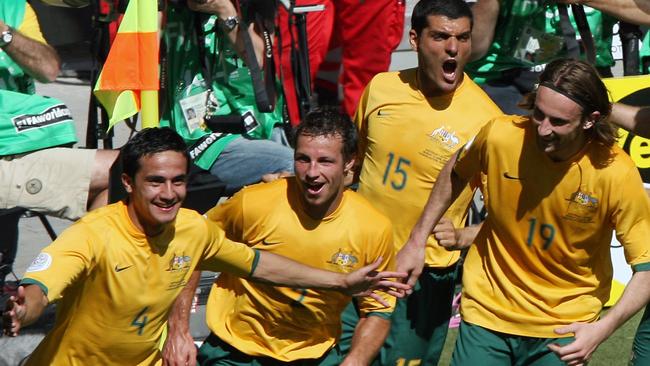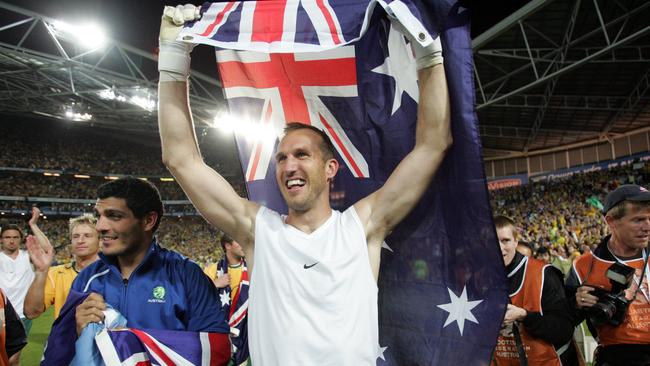New study finds Socceroos’ ‘Golden Generation’ was an anomaly
A new study aimed at unlocking the secrets of Australia’s ‘Golden Generation’ of footballers has uncovered some stark findings, including a reality check for the current Socceroos.
Socceroos
Don't miss out on the headlines from Socceroos. Followed categories will be added to My News.
A new study aimed at unlocking the secrets of Australia’s ‘Golden Generation’ of footballers has found our greatest Socceroos team was an aberration and that the current talent pool is more in line with realistic expectations.
Titled ‘Culture Amplifies Talent: Building a Framework for Golden Generations’, the study by Professional Footballers Australia included input from 17 members of the Socceroos set-up who took Australia to their first World Cup in 32 years.
Now some of the key figures in that wave of talent — who played in some of the world’s strongest leagues — have identified the key themes in what built them as footballers and drove them to be part of the global elite — the upper echelons which now are almost devoid of Australian representation.

Australia went within a whisker of advancing to the quarter-finals of the 2006 World Cup, losing 1-0 to 10-man Italy via a controversial Francesco Totti penalty.
According to the PFA report, the Socceroos face an uphill task to replicate that feat, finding the ‘Golden Generation’ was an outlier, an abnormal spike of talent for which Australia have now reverting to the norm, rather than suffering a perceived drop-off in quality.
Among the respondents, John Aloisi — whose penalty shootout heroics against Uruguay broke Australia’s 32-year World Cup absence — grew up in a family where “we just thought it was normal that we were only friends with people that liked football”, and weekend life revolved around the local Italian football club.

Josip Skoko didn’t believe he was as “naturally as talented as some, so I really had to work for everything … the back yard and unstructured play was the biggest influence”.
Paul Okon remembers moving to within metres of the Marconi Club aged 10 and “our parents would be inside the club and we’d be outside kicking the ball around”.
As the Australian game struggles to understand why the talent pool at the very top level has shrunk like a national porting drought, the players’ association has launched a comprehensive survey, conducted by Victoria University involving 17 members born in the time of the so-called Golden Generation — from Paul Okon to Nathan Burns.

The aim was to discover what made them great players and key themes emerge, most notably that all of them spend hour upon hour each week playing football in the street or back yard, as well as playing at a local club where their parents socialised and their sibling also played.
Almost all were products of migrant families coming from European countries where football was the dominant sport, and many of them were drawn to their relevant local community club which became a second home.
All of them spoke of parental sacrifices, driving them for hours to training and encouraged to play at all hours. And a common refrain was that the current generation should be better than them because of the structured coaching and pathways available now — the problem is, they’re not better.

MORE NEWS
Full house to ignite Sydney derby
Australian rugby about to tear itself to shreds
NRL club launches $1m-a-season bid for Fifita
The older players worry their successors are “overcoached”, taught in the narrow confines of the national curriculum rather than practising skills by themselves in the back garden, and facing a barrage of competing factors for their time including screen time and homework.
“This study demonstrates that producing internationally competitive footballers goes ‘beyond a curriculum’ and is achieved through building a deep football culture where institutions such as clubs, the media and family work interdependently,” said PFA CEO John Didulica, himself a former NSL player.
“It has demonstrated that immersion in the game — in all its wonderfully eclectic dimensions — is a condition precedent to achievement.”
